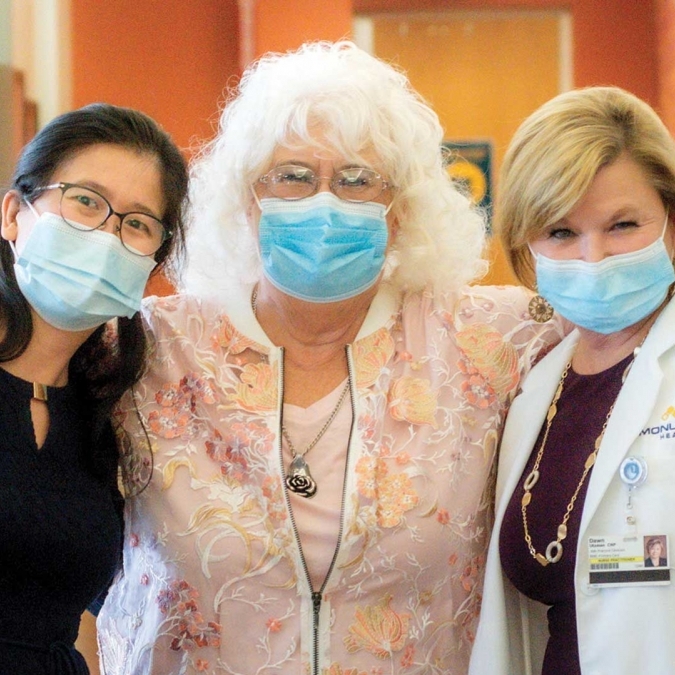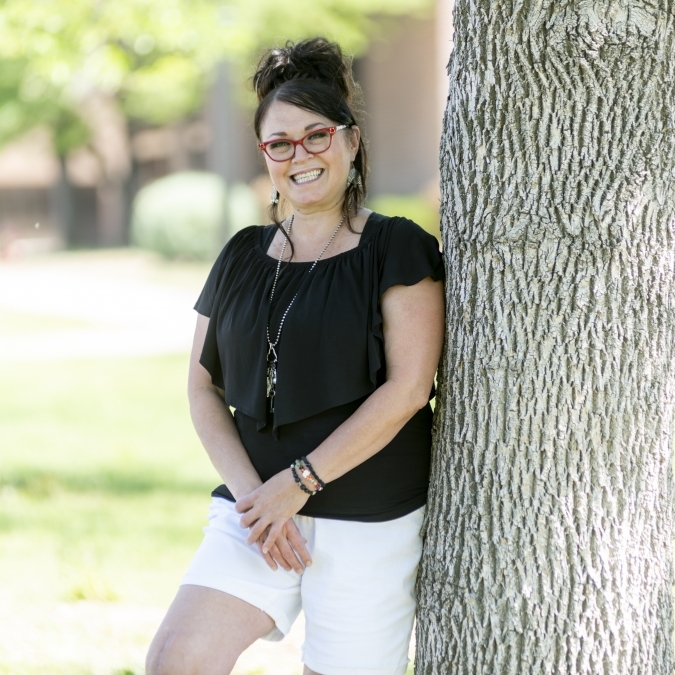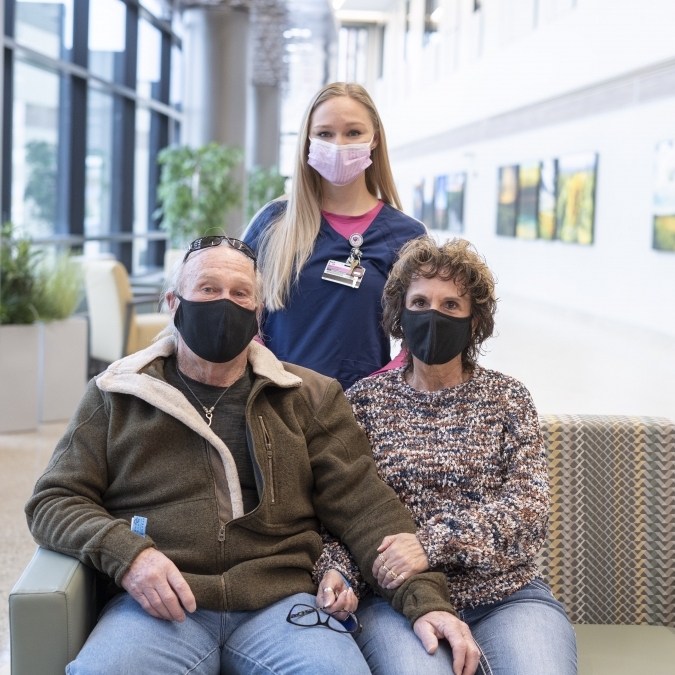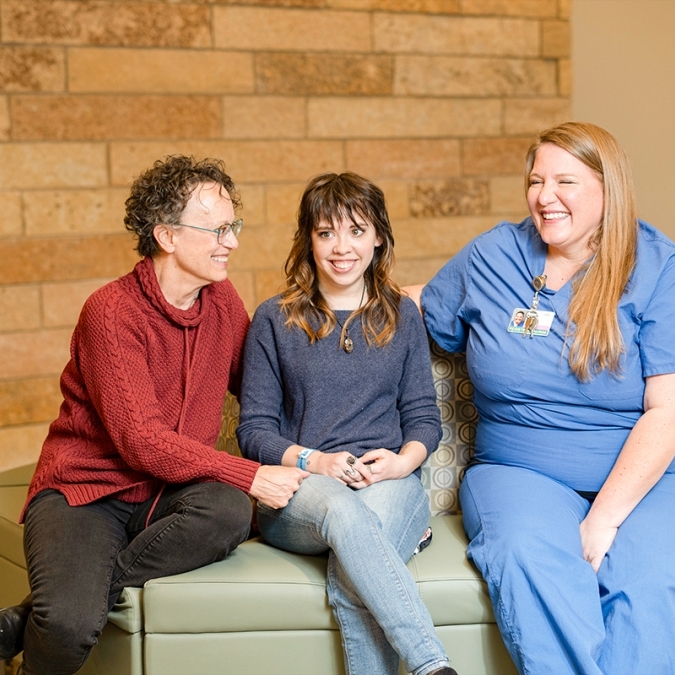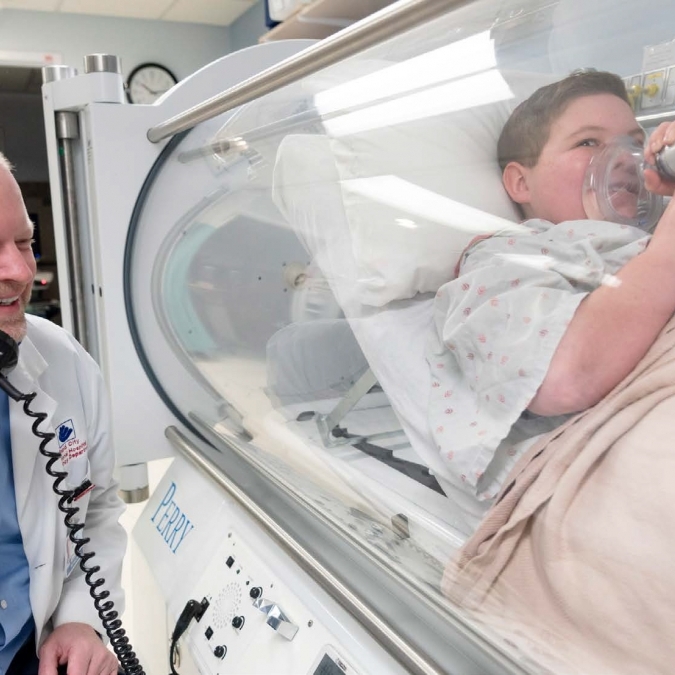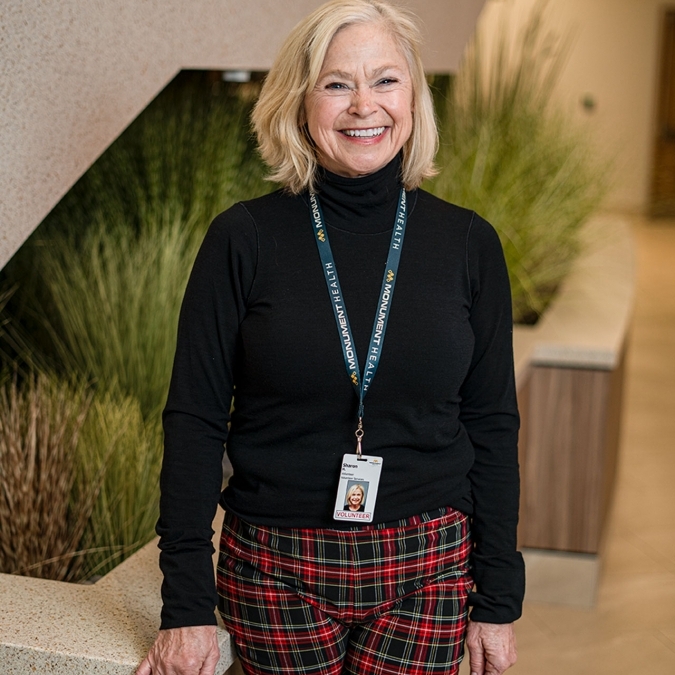Gordy Pratt is no stranger to being in the spotlight. The singer-songwriter was inducted into the South Dakota Country Music Hall of Fame in 2017. He brings his own brand of musical comedy to venues like the High Plains Western Heritage Center and Palmer Gulch Chuckwagon, where he provides comic relief in a western setting.
Perhaps because he’s familiar with holding an audience’s attention, he’s also very open about his own health. Gordy has managed his diabetes for 21 years, on top of being diagnosed bipolar in 1987 and during a recent bout with tonsil cancer.
Help from the Experts
“If I had sage advice for anyone, it would be that it always works best if I do what the smart people tell me to,” Gordy says with a laugh. “Of course, it’s not always easy. I take pills for bipolar disorder, I’ve got a CGM pump for my diabetes and I had to manage those while I got chemo and radiation for cancer.”
The CGM pump that Gordy refers to is a Constant Glucose Monitor and insulin pump, which uses a sensor underneath the skin to take glucose readings and then delivers precisely measured doses of insulin to match the user’s needs. This advancement can replace traditional testing and multiple daily injections for many diabetics. “Technology has drastically improved. The insulin pumps are a great example of rapid change,” says Deb Winter, RN, CDE, CFCN, a Diabetes Educator at Monument Health. “CGM wasn’t available 20 years ago, and now there are units that can do remote monitoring. The medications have improved as well. It’s unreal now, compared to even 15 years ago.”
Gordy is grateful for the innovation, but he can’t help but laugh as he says, “I’m amazed when I see people my age operating these things, because it’s an extremely sophisticated piece of gear. Poking a needle based on numbers was easier, but it wasn’t nearly as good.”
Keeping up with that changing technology is only part of what Deb does. She also educates patients with diabetes about the treatment and management options that are right for them, including the latest innovations.
Deb says, “I trained Gordy when he went on his insulin pump, and it helped him with his management over the years. The education has really shifted from presenting a curriculum to developing an individualized approach where we sit down with the patients and teach them, but also provide support and encourage them to be more involved in the education process. People understand diabetes now, and the education and management is more
of a team approach.”
“Diabetes education isn’t me or another educator telling a patient what they need to do. It’s sitting down and saying, ‘let me help you understand your options for managing your diabetes.’ It wasn’t always like that. Now we say, ‘here are the options available to you. Do you want to try these medications? We feel like this treatment will be effective for you, what do you think?’ Then we work with them and the provider and keep the patient involved and making decisions in their treatment plan. That’s what we encourage, because we know that’s when patients stick with it.”
Deb Winter, RN, CDE, CFCN
The Future is Bright
Gordy visits his primary care physician every three months to monitor his diabetes and other medical conditions, and over the years, he has noticed a change in the public perception of diabetes.
“I think there’s a better understanding among the general public of what diabetes is and how it works. Everybody knows somebody who has it, and I think there’s much less of a stigma about it than there was when I was first diagnosed,” Gordy says.
The technology and treatment options may have changed, but one thing hasn’t: diabetes education isn’t just about curriculum, it’s about building relationships. “Gordy was one of my first patients when he was diagnosed,” Deb says. “We’ve known each other since that time, developed a good friendship and had a lot of fun. He’s a true delight to work with — he’s got a good sense of humor and he’s always looking at everything with a positive view. The glass is always half full, not half empty.”
When Gordy was receiving chemotherapy and radiation to treat his tonsil cancer, there was a day where he became severely dehydrated, which negatively affected his state of mind. He wasn’t able to change his pump, and relied on his wife, Patty Roadifer, to contact Deb Winter who walked her through the process.
“My better two thirds was having to deal with me in that state of mind, and bless her heart she needed help,” explains Gordy. “So we called Deb and for the next four hours, Patty and Deb were on and off the phone on a Saturday night. I know Deb’s done that kind of stuff before. The woman is a saint.”
Diabetes is a lifelong disease, but knowledge is power when it comes to treatment. The diabetes education team helps patients find the best treatment plan for their individual health needs.

